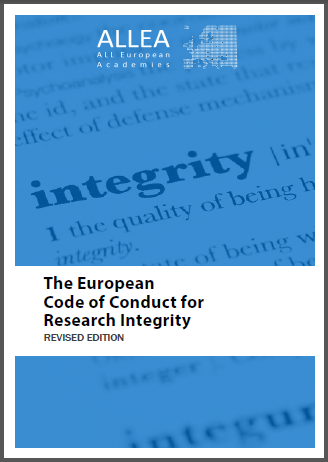ALLEA has released a new Code of Conduct for Research Integrity March this year. This replaces the original Code of Conduct from 2011. So what is new and why the  new code?
new code?
The first difference between the codes is its length – the new code is remarkably more succinct and brief. While the old code had its great advantage of spelling out principles and reasons for the code, the new version is more accessible and readable. And because ethical questions can rarely be resolved by rules, there is no need to attempt writing a code that would answer all questions!
Even the list of key principles has been reduced to four: reliability, honesty, respect and accountability. Most of the previously highlighted values are now embedded in the description of these values. For example transparency, which I consider an essential and core principle in research, is now included as an explanation of honesty:
Honesty in developing, undertaking, reviewing, reporting and communicating research in a transparent, fair, full and unbiased way.
So the number of principles has not really been reduced. They have only been written differently. This is important to note as the values in research are so implicit to the entire research process that chancing them would also dramatically change how we do and view research.
One of the reasons to review the code was to respond to changing research environment. Mainly this refers to responding to “expanding open access publishing, and the use of digital repositories, and … new ways of communicating science and involving citizens in research”. These are now more prominently in the code and highlighting how the principles apply in practice. This gives researchers and research communities more tools and guidance on how to ethically navigate in the changing research environment.
One noticeable area is still not covered by this version of the code. Private funding and the ethical challenges that presents to researchers and the research community are not considered. Surely the same principles do apply to these situations, but explicit guidance on how to promote transparency and respect, for example, in these situations would be helpful.
This code supports the Finnish Responsible Conduct of Research guidelines. How this new Code changes the integrity landscape was elaborated in an Open Discussion Forum (in Finnish) on Thursday 4.5.2017.